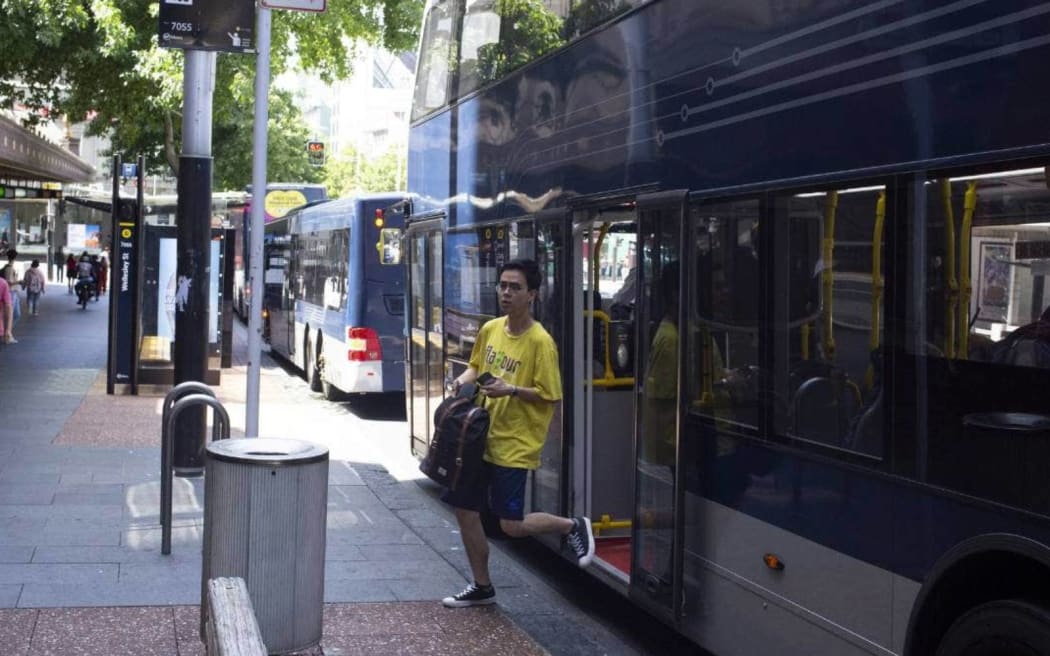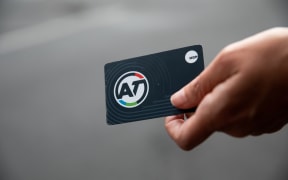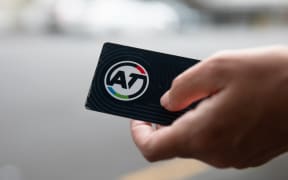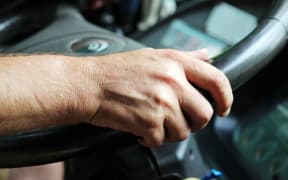By Torika Tokalau, Local Democracy Reporter

Public transport use is recovering from Covid-19 impacts, but costs are rising faster than inflation, AT says. Photo: Ricky Wilson/Stuff
A woman living with disabilities says a looming public transport fare rise in Auckland will make life tougher for people like her.
Aucklanders will pay up to 10 percent more to use public transport from 4 February, in the second fare increase in 12 months.
Auckland Transport's (AT) board approved an average 6.2 percent rise. For standard adult fares, this works out to be an increase of between $0.06 and $0.40 per journey on buses, trains and ferries.
The increase was to help meet significant and sustained operating cost increases.

Gabrielle Hogg, 36, a Manurewa resident in South Auckland, said the fare hike would deeply affect the most vulnerable in the community, who depend on public transport everyday.
Hogg is autistic and relies on the bus and train to get around to school, health appointments and outings to the city with her carer.
She spends almost $50 a week, and the fare increase would see her fork out an extra $10.
"I don't actually have that extra spare money to spend," Hogg said. "It's already a tight budget as it is."
Hogg said she survives on about $300 a week, after rent is paid. She gets a disability allowance of $75 which goes towards her medical needs.
She also had mental health issues and health problems including endometriosis and bilateral foot drop.
She wears prescription glasses, ankle foot orthotics and knee braces, and uses hearing aides for Auditory Processing disorder, which is not funded.
"It's actually disabled people and, or, those with medical needs that use public transportation."

Manurewa resident Gabrielle Hogg says she was already living on a tight budget and a fare hike would only be harder for her. Photo: Supplied
AT public transport and active modes director Stacey van der Putten said the fare increase was to keep up with the rising costs of running and maintaining the public transport network.
"In recent years we have been mindful of the impacts Covid-19 and extreme weather has had on our customers," she said.
"We deferred last year's fare increase until April and in 2022 there was no increase at all.
"But operating costs have spiked dramatically over this period, driven by high inflation and staff shortages.
"Adjusting fares to raise revenue is unfortunately one of the steps AT needs to take to cover these higher costs."
Pukekohe resident Mary Perry said she didn't have a problem with the increase, but the quality of service AT provided to users.
Perry, a solo mum, travelled to the city three times a week, catching two buses and a train to get to work.
She currently pays $7.18 for a trip, which would increase by 20 cents from next month.
"Twenty cents doesn't seem much and I don't get any discounts," Perry said.
"[The] majority of times there are cancellations, buses and trains are full. The bus from Pukekohe to the Papakura train stations isn't a rail bus so it's stopping all the way, which means longer travel time."
Perry said the end of half-price fares last year was disappointing.
"It was like giving us a sweet treat, then taking it away, and now we have an increase.
"They say shorter trips are some of the most affordable in the world but what is that in comparison to quality of service?"
She said she didn't have the luxury of catching a bus at her doorstep because there wasn't any available.
"There's a huge population growth in South Auckland, there is no express train yet from Pukekohe... South Auckland has been neglected. It took a long time for that bus hub in Manukau to get built."
Hogg said if AT wanted more people on buses and trains than cars, they should consider making transport free for everyone.
"Then it would be truly accessible money wise for everyone, and this would decrease the environmental pollution.
"And they can go the extra step if they want to do it in stages and allow our carers to travel free on trains and ferries too, and not just the buses. Then this would make it accessible for those with access needs."
LDR is local body journalism co-funded by RNZ and NZ On Air.




